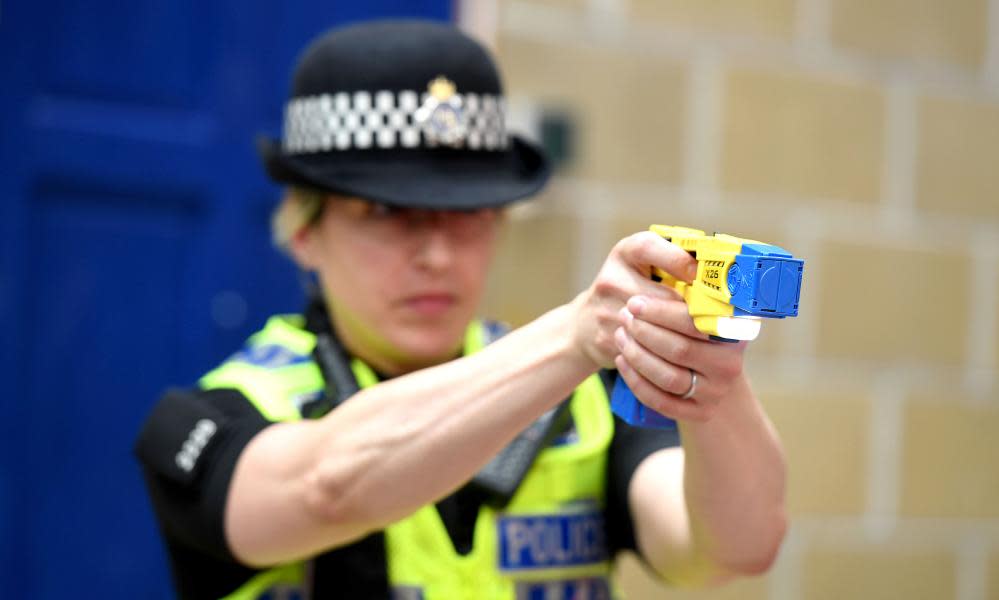Extra 500 Scottish officers to get Tasers after rise in assaults on police

Police Scotland will train and equip 500 local officers with Tasers as the force struggles to deal with a sharp increase in assaults on police.
In what amounts to a significant upgrade in operational capability, the force will also extend the role of armed officers to allow them to attend more non-firearms calls.
The changes come after a turbulent few months for the force, with a string of high-profile suspensions, and morale among rank-and-file officers low, according to the Scottish Police Federation, because of poor resourcing and equipment in disrepair.
Announcing the new training and deployments, the deputy chief constable for crime and operational support, Johnny Gwynne, said: “Our officers are facing increasing threats of violence from people with knives and other bladed weapons. We’ve also seen an increase in the number of officers attacked while carrying out their everyday duties.”
One officer was stabbed in the back in an incident at an Edinburgh college earlier this month. There have been almost 1,000 assaults on officers across Scotland in 2017, compared with 764 in 2016.
A recent survey for the Scottish Police Federation found that nine out of 10 officers wanted to be equipped with a Taser, while one in eight believed that existing personal protective equipment was ineffective.
Taser use will be reviewed next autumn, and the specially trained officers will continue to be referred to Scotland’s police watchdog, the Police Investigations and Review Commissioner, if they discharge the device. Currently, only armed response vehicle officers are trained to use Tasers, and there have been only three discharges this year.
Gwynne added that while the terror threat to Scotland had increased over the past year, his primary concern was officer safety. “What really worries me is officers going home with a hole in them because someone’s stabbed them.” He noted that the force had lost 3,000 officer days over the past three years because of assaults while on duty. “This is not just about protecting officers but making them more available.”
He said the current model for deploying armed response vehicle officers was inefficient, and that they should be available to respond to a wider range of incidents including road crashes and medical emergencies.
Gwynne insisted Police Scotland had carried out extensive engagement with politicians, stakeholders and local communities before making these operational changes, and acknowledged the previous public outcry over police officers carrying weapons to everyday incidents. He admitted: “Previously we have not engaged as well as we could have when making decisions about how they are deployed.”
He also confirmed that the plan to equip more officers with Tasers was set in motion by the chief constable, Phil Gormley, who remains on special leave pending the investigation of a string of misconduct allegations against him.

 Yahoo News
Yahoo News 
